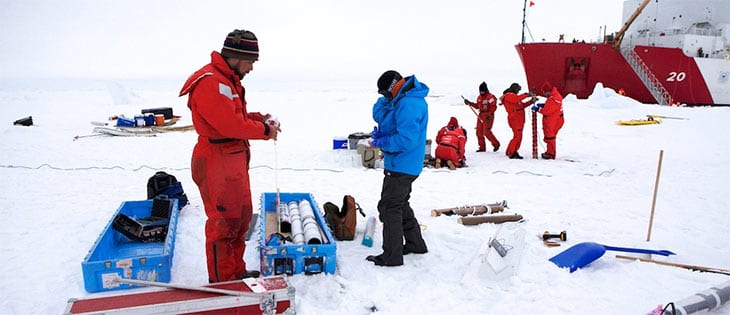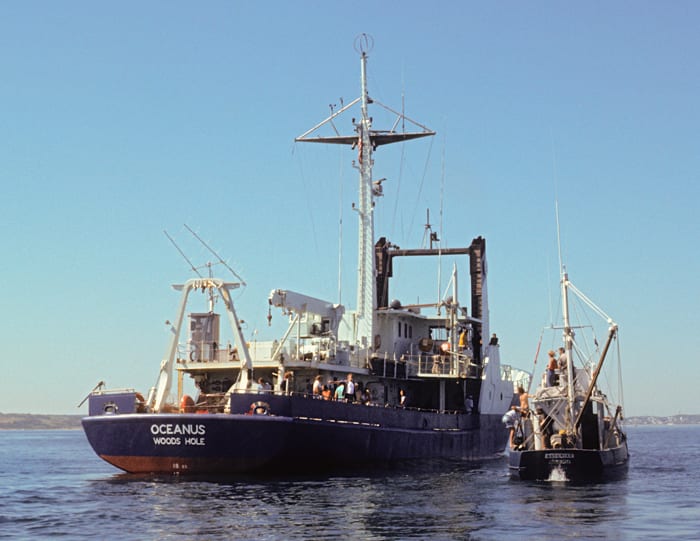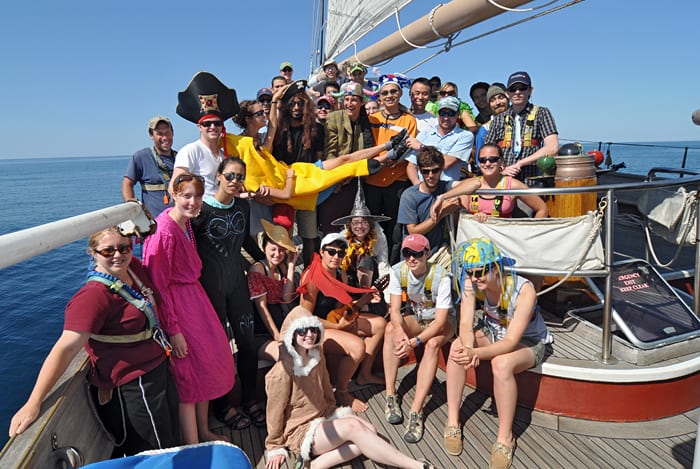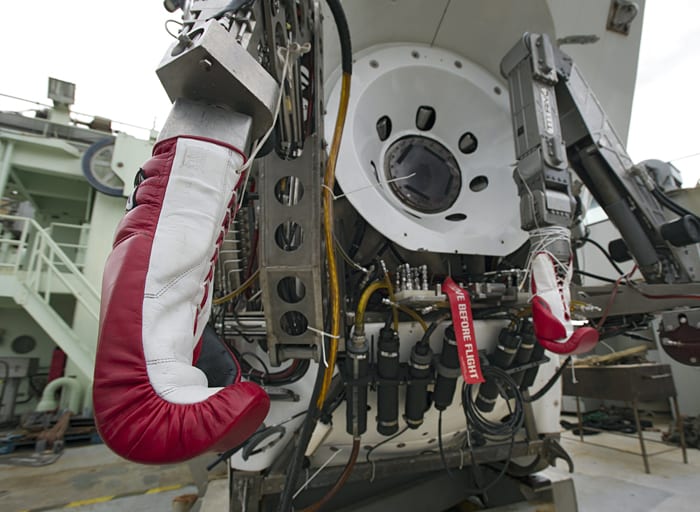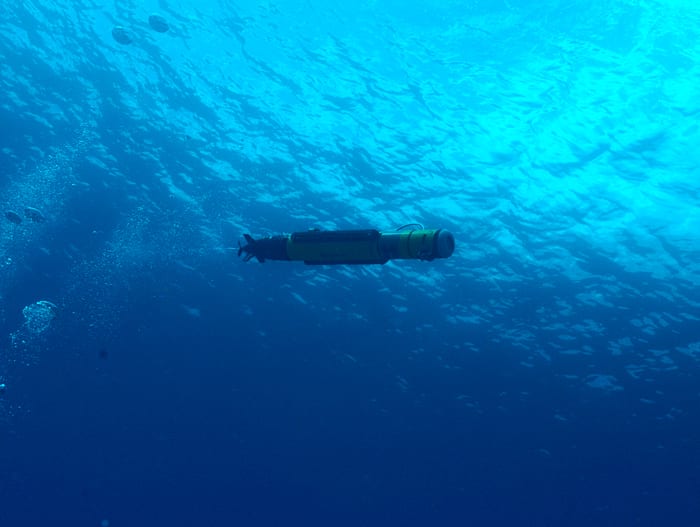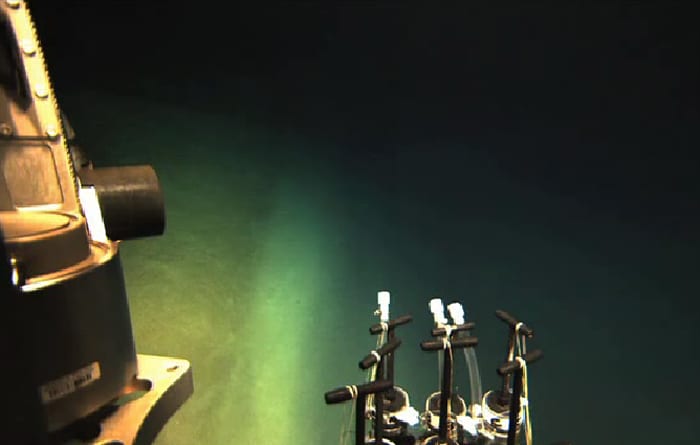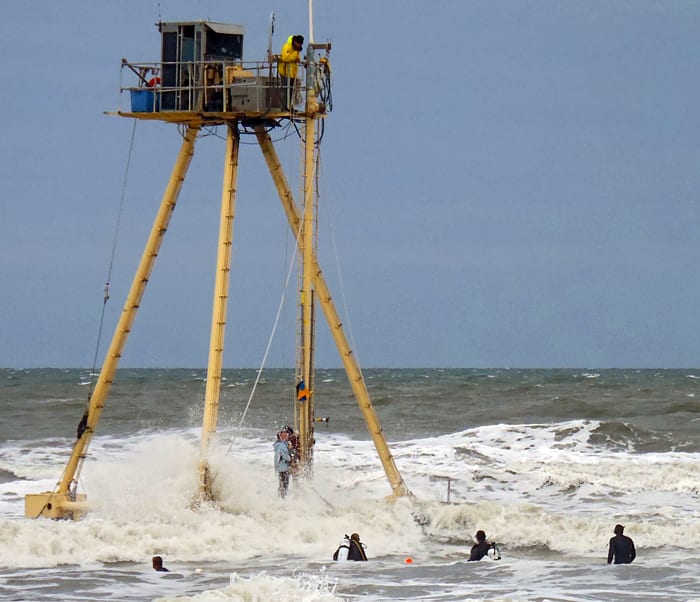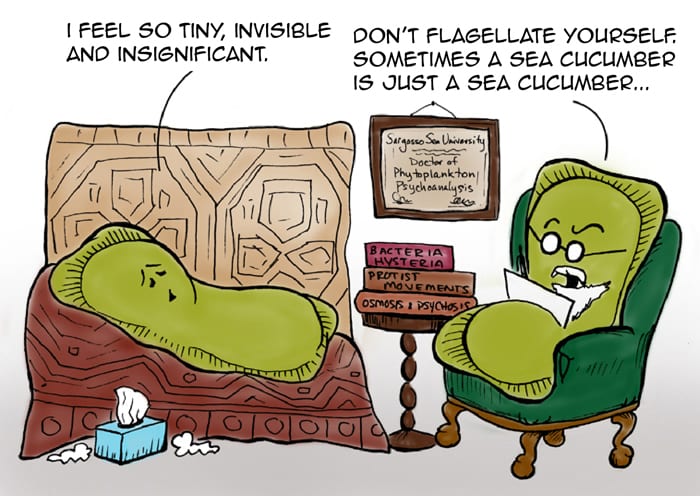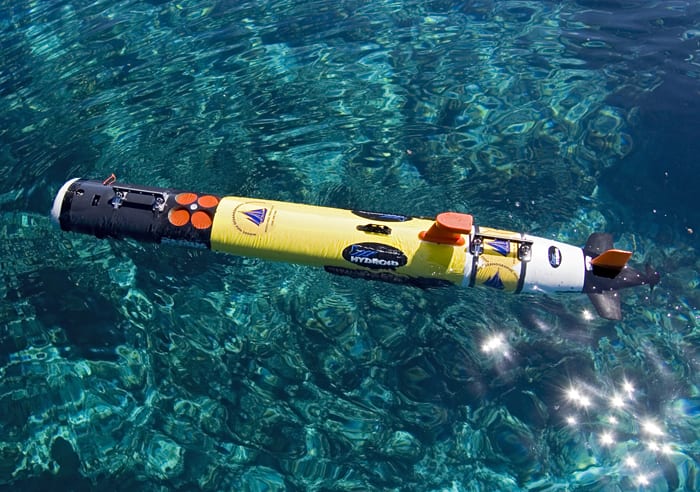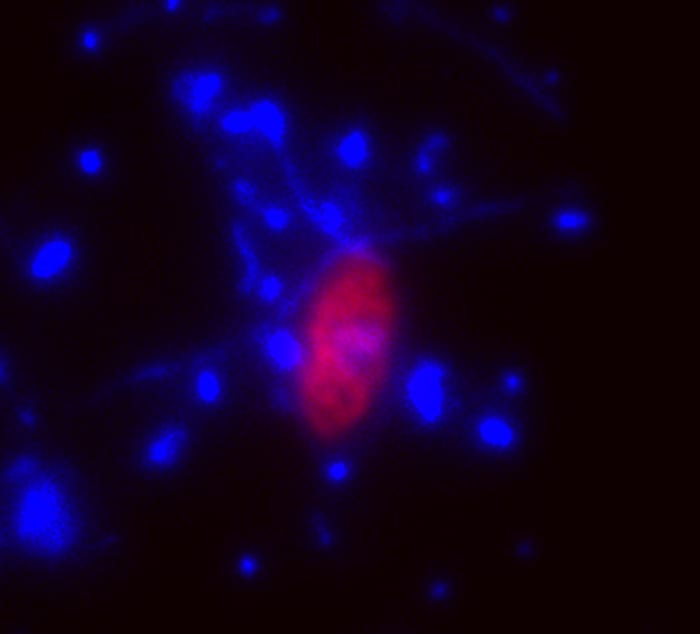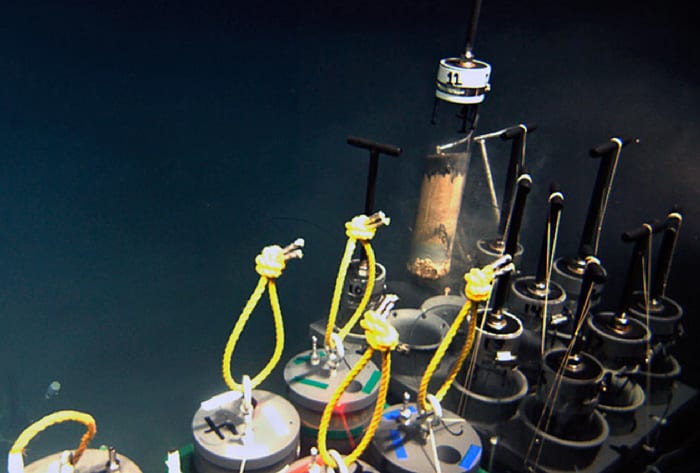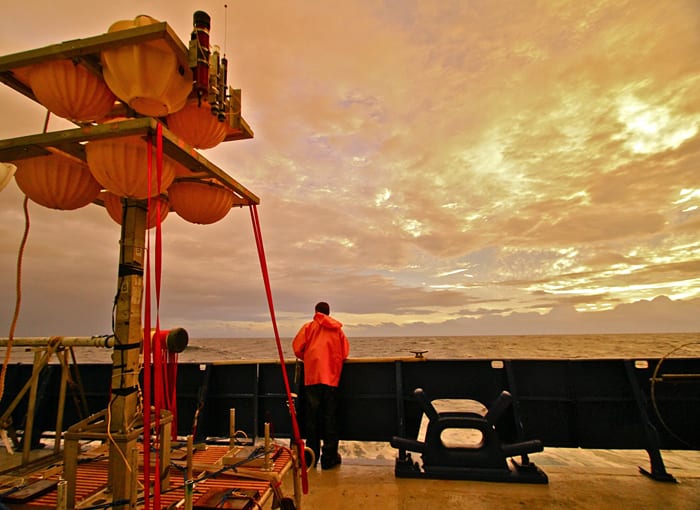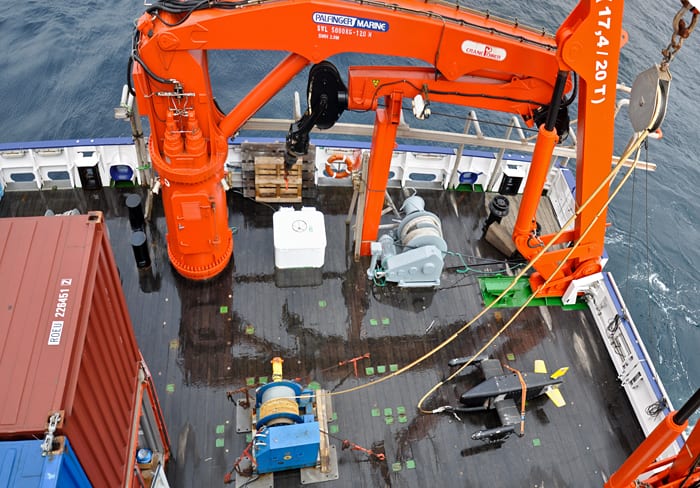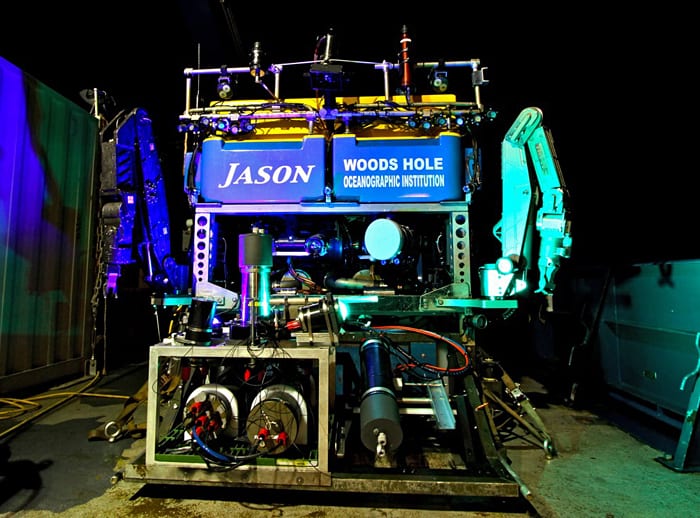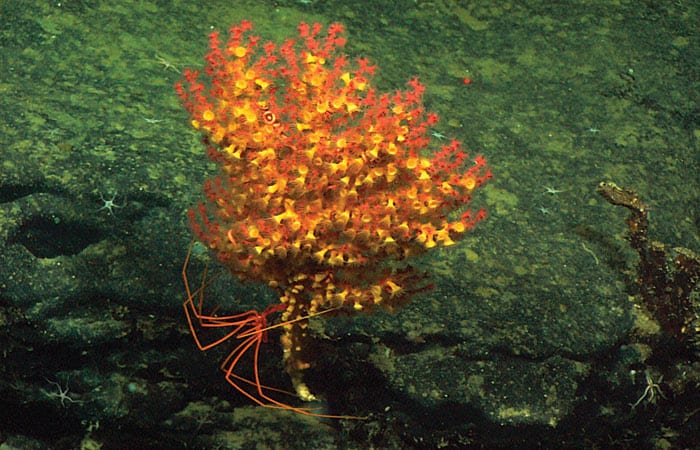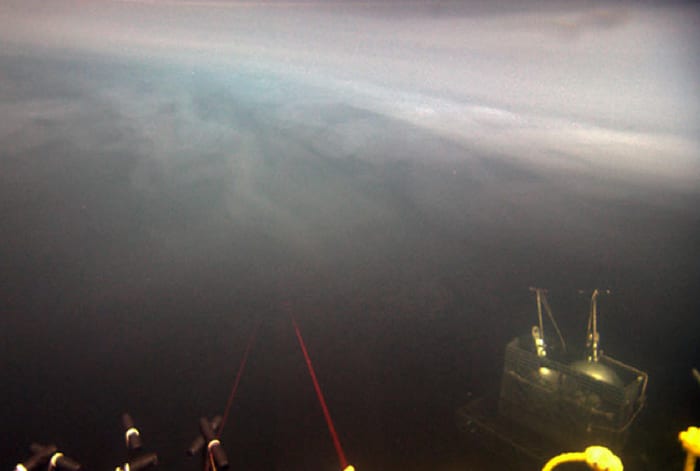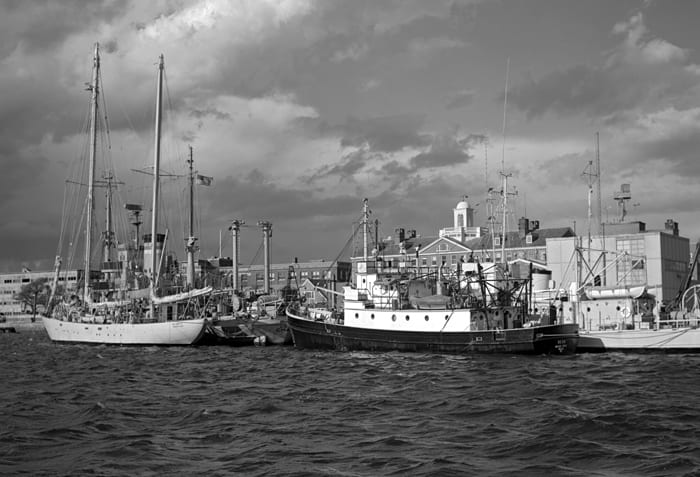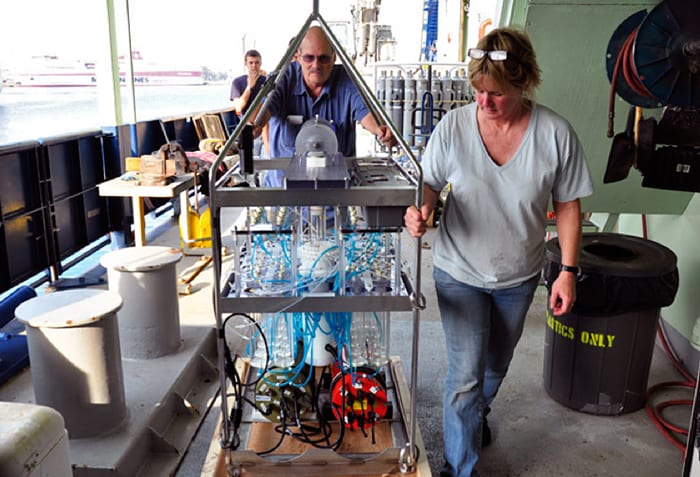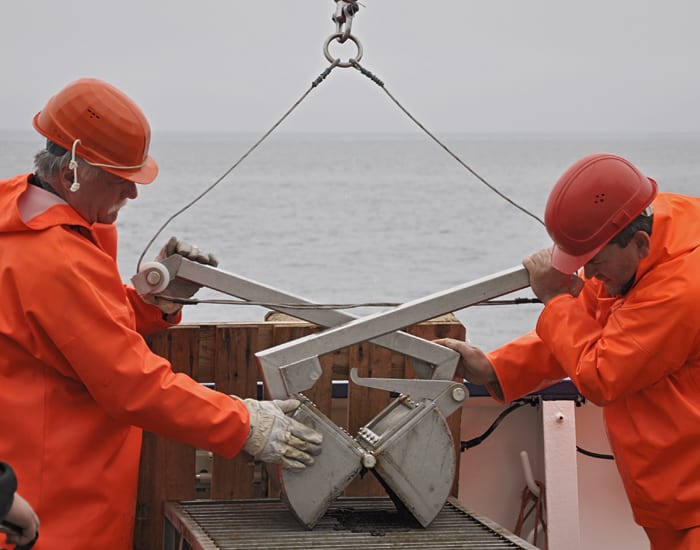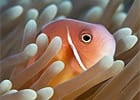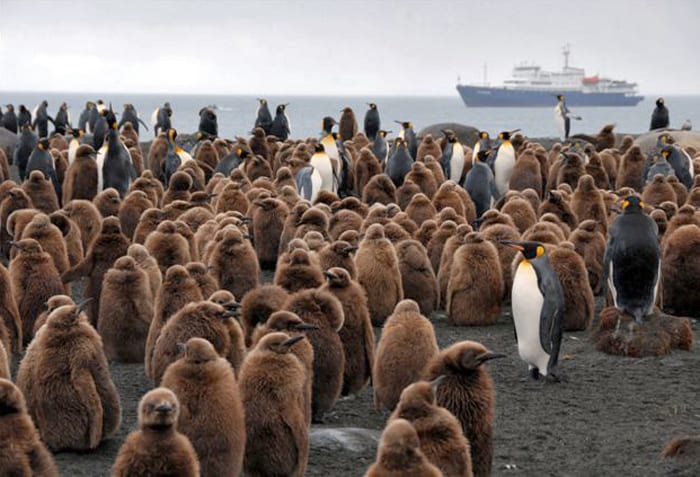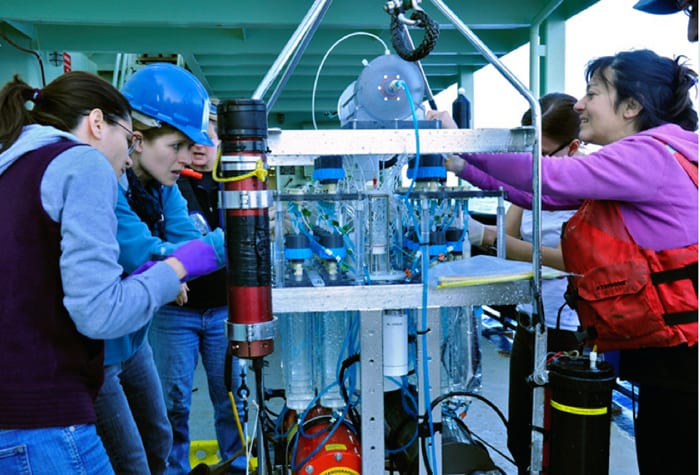Multimedia Items
Research Top Images
Sibling Ships
The research vessel Oceanus was greeted by its little sibling, Asterias, near Woods Hole. After its arrival in Woods Hole in November 1975, Oceanus proved to be a workhorse, with…
Read MoreDressed for the Deep
Each summer, graduate students in the MIT-WHOI Joint Program are welcomed to Woods Hole and to oceanography with the ten-day Jake Peirson Summer Cruise aboard the Sea Education Association ship SSV Corwith Cramer. Students learn how to do…
Read MoreKnockout
Somewhere during the 47-year life of the deep-submergence vehicle Alvin, someone found that padded boxing gloves did a perfect job of protecting the submerisble’s manipulator arms while it sat on…
Read MoreSearching for the Past
A REMUS 100 autonomous underwater vehicle dove through the clear, blue waters of the Mediterranean in September 2011 on a mission to find and survey Bronze Age shipwrecks off the…
Read MoreA “Beach” in the Mediterranean
During a 2011 Dive & Discover cruise in the Mediterranean, scientists from WHOI and other institutions explored three super-salty “lakes” called DHABs at the bottom of the sea. They used…
Read MoreIn the ‘Washing Machine’
With a storm approaching, a team worked “in the washing machine” of a raging surf zone at the Field Research Facility in Duck, N.C. in 2011 to recover instruments measuring…
Read MorePsychotherapy for Plankton
WHOI graphic artist Amy Caracappa-Qubeck drew this humorous cartoon after Erin Bertrand described her research on environmental “stressors” that govern the productivity of microscopic marine plants, or phytoplankton, at the…
Read MoreREMUS Reef Reconnaissance
In order to design marine preserves that best protect fish, conservationists need to know more about where and how fish move from their larval to adult stages. In 2006, WHOI…
Read MoreSomething FISH-y
FISH (fluorescence in situ hybridization) is a powerful technique in which a fluorescent tag is attached to an RNA fragment that in turn binds to specific kinds of cells. This…
Read MoreHistory, Written in Mud
A sediment sample in a push core taken from the upper reaches of a deep, hypersaline, anoxic basin (DHAB) hints at a complex history for the 3,000 to 35,000 year-old…
Read MoreA Welcome Sight
Ben Tradd, a pilot with the Jason operations group, takes in the sunset aboard the R/V Atlantis following days of heavy rain, high winds and rough seas in October 2011.…
Read MoreReady to Fly
The video plankton recorder, shown on deck at right, resembles a small airplane. In fact, it does fly—in the water. In August 2011, the German research vessel Maria S. Merian…
Read MoreUntethering Communications
The remotely operated vehicle (ROV) Jason rests on the deck of the R/V Atlantis in August 2011 following a day of successful test dives with a new communications and control…
Read MoreLife on Seamounts
deepseacoral_11_198202.jpeg
Read MoreLife on Seamounts
Clouds at the Bottom of the Sea
A photo taken by a camera on the remotely operated vehicle Jason reveals the weird, murky world of Urania Basin, an anoxic, super-salty “lake” 3.5 kilometers deep in the eastern…
Read MoreNautical Reunion
In the 1950s and 60s it was rare to see four WHOI-operated ships docked at the same time in Woods Hole, their home port. The vessels, normally ranging around the…
Read MoreWelcome Aboard, SID-ISMS
WHOI researchers Craig Taylor and Ginny Edgcomb wheel SID-ISMS, a new water column sampler, to the main lab of R/V Atlantis in preparation for their 2011 research cruise in the…
Read MoreGrabbing for Samples
German researchers Falk Pollehne (left) and Michael Zettler of the Leibniz Institute for Baltic Sea Research prepare a Van Veen bottom grab sampler during an August 2011 research cruise off the…
Read MoreCoral Reef Fish
Coral Research
One Cool Colony
Some friends of the Institution recently joined Newt Merrill, Chair of the Board of Trustees; Susan K. Avery, WHOI’s President and Director; and Susan Humphris, Senior Scientist in the Geology & Geophysics…
Read MoreQuick Pit Stop
Moments after the SID-ISMS (Submerged Incubation Device-In Situ Microbial Sampler) returned from beneath the Mediterranean Sea, an international team of scientists hurried to remove the samples it brought back and…
Read More
